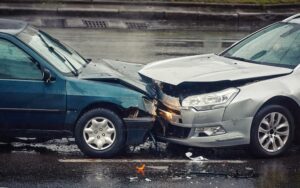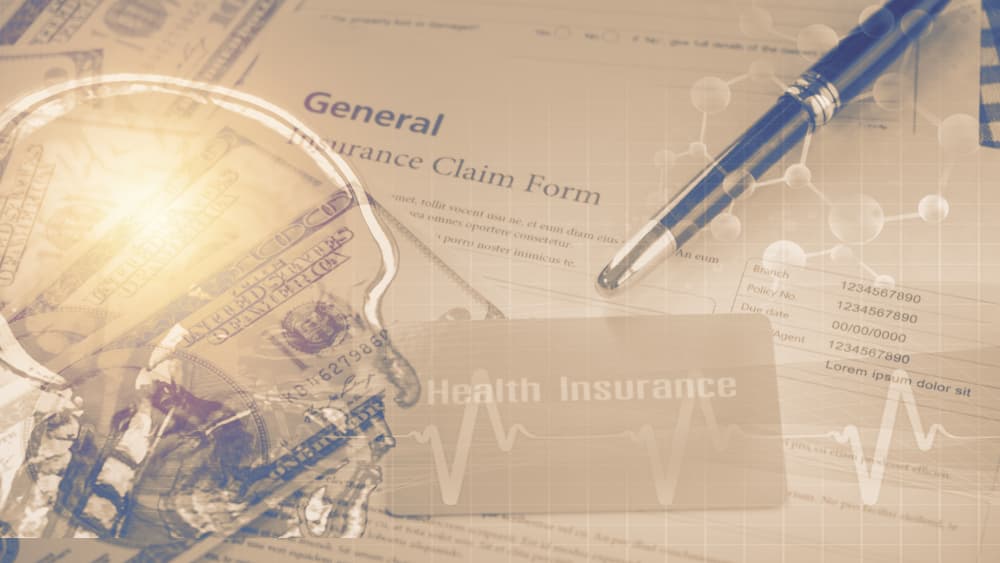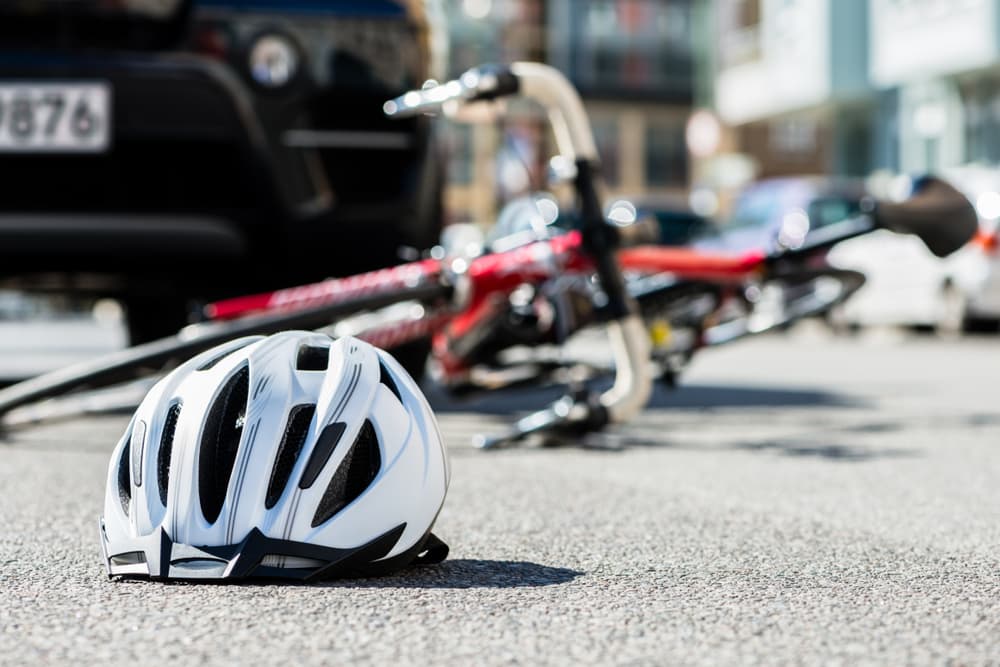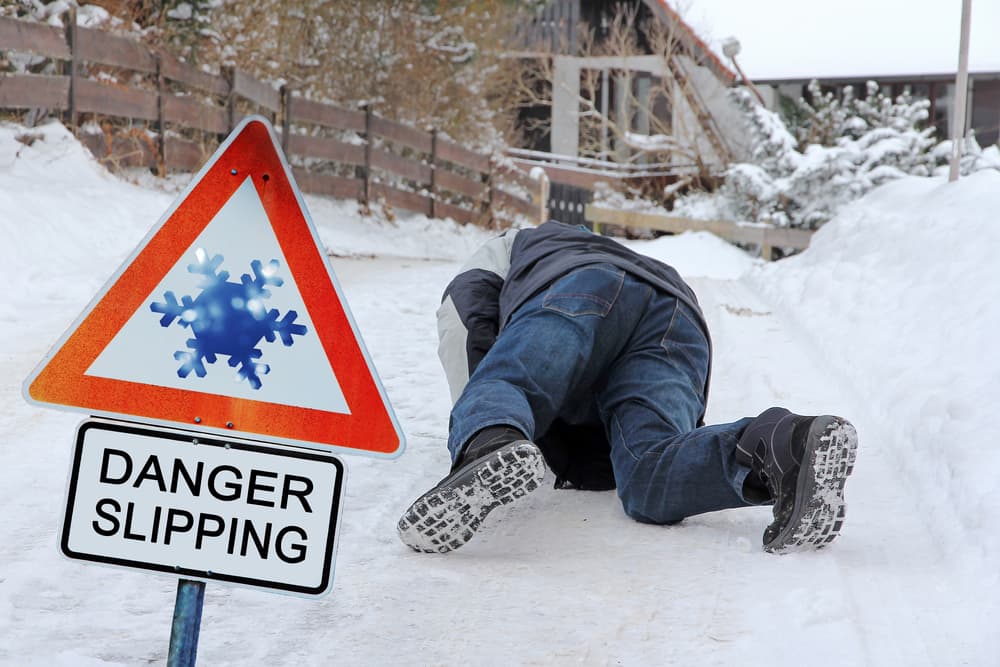A head-on collision doesn’t end at the accident scene. As you recover from the shock and pain of such a devastating event, you’re likely grappling with mounting medical bills, income losses, and endless questions. In such challenging times, it's crucial to consider seeking assistance from a Columbia car accident lawyer.
Here are the answers you need to your questions if you recently suffered harm in a head-on collision in Columbia, South Carolina.
What Is a Head-on Collision?
A head-on collision ranks among the most severe types of vehicle accidents. In this type of collision, two vehicles traveling in opposite directions crash into each other front-first.

Unlike side-swipes or rear-end collisions, the force of impact in a head-on crash comes from both vehicles’ momentum, often leading to substantial damage and severe injuries.
Columbia, South Carolina, sees its fair share of traffic, and unfortunately, many head-on collisions occur here as a result. Common reasons for these devastating accidents include inattentive driving, driving under the influence, and veering into oncoming traffic due to drowsiness. While road conditions and weather also often play a role, driver negligence remains a significant factor.
If you or a loved one experiences a head-on collision in Columbia, seek legal advice immediately. You could be eligible for significant compensation, and the right lawyer can help you get it. An attorney can evaluate the strength of your case, explain your options, and handle every step of the claims process for you.
How Often Do Head-on Collisions Happen?
Head-on collisions are less common than other types of accidents, but they still happen far too often. And when they do, they frequently cause catastrophic damage and severe or even fatal injuries.
According to the Federal Highway Administration:
- Roadway departures resulted in 57,475 U.S. traffic deaths from 2016 to 2018. Of these deaths, 15,744 (27.4 percent) were due to head-on collisions.
- Roughly 14 percent of all U.S. traffic fatalities result from head-on crashes.
- Of all head-on accident fatalities in the U.S., 85 percent occur on undivided roads, and 70 percent occur on roads with speeds greater than 50 mph.
- Another 65 percent of head-on collision fatalities occur in rural areas, 31 percent on curved roadways, and 22 percent on wet roads.
The Association for the Advancement of Automotive Medicine examined the vehicle-related factors that affected injury severity in head-on collisions.
According to the Association’s findings:
- When both an airbag deployed and the driver was wearing a seatbelt during a head-on collision, the serious/fatal injury rate was 18.26 percent.
- In situations where the driver wore a seatbelt but there was no airbag deployment in the head-on collision, the injury rate was 12.14 percent.
- The higher injury rate among head-on collisions with airbag deployments is likely due to the greater severity of the crashes that set off the airbags.
- In instances where no airbag was present or it did not deploy, occupants in heavier vehicles exhibited lower injury rates.
- Specifically, vehicles that were above the 80th percentile in weight had an injury rate of 9.56 percent. Those at or below the 40th percentile in weight had a 13.85 percent injury rate.
Common Causes of Head-on Collisions
In a personal injury case after a head-on collision, understanding the common causes of head-on collisions allows you to identify possible wrongdoing and determine who is liable. Here are some contributing factors that frequently give rise to head-on collisions in Columbia:
Distracted Driving
Distracted driving is a leading cause of head-on collisions. Activities like texting, fiddling with the radio, eating, or talking to passengers can divert a driver’s attention away from the road. Even a few seconds of distraction can result in a driver veering into oncoming traffic and causing a head-on crash.
Driving Under the Influence
Alcohol and drugs impair judgment, coordination, and reaction times. Drivers under the influence often misjudge distances, struggle to stay in their lanes, or even drive the wrong way on one-way roads, increasing the risk of head-on collisions.
Driver Fatigue
Driving while drowsy poses a serious risk. Fatigued drivers can easily drift into oncoming lanes if they nod off at the wheel, even momentarily. Moreover, their slower reaction times and compromised judgment can contribute to poor decision-making, sometimes resulting in head-on crashes.
Poor Road Conditions
Potholes, uneven surfaces, or a lack of clear lane demarcations can confuse drivers or cause them to lose control of their vehicles. In trying to regain control or avoid hazards, drivers dealing with poor road conditions might inadvertently swerve into oncoming traffic head-on.
Speeding and Overtaking
Drivers who speed often misjudge the time and distance necessary to overtake slower vehicles safely. In their haste, these drivers sometimes find themselves face-to-face with oncoming vehicles. These accidents are particularly common on undivided highways, where drivers can cross into opposing traffic lanes to pass.
Adverse Weather
Fog, heavy rain, snow, or ice can reduce visibility and make roads slippery. Drivers operating in inclement weather are less likely to see oncoming vehicles until it’s too late and more likely to lose control of their cars on slick surfaces. Regardless, drivers are responsible for maintaining control of their vehicles in all conditions. In bad weather, this means slowing down and paying more attention to the road.
What Makes Head-on Collisions More Likely in Columbia?
As the state capital of South Carolina, Columbia holds a distinct position that brings with it unique traffic challenges, thereby increasing the risk of head-on collisions.
The city’s central role in The Palmetto State means a constant influx of governmental and business traffic, often leading to congested roads and frustrated drivers, especially during peak hours.
Another major traffic concern arises from the intersection of three significant highways: I-20, I-26, and I-77. These highways funnel a vast number of vehicles into the city, and the convergence creates many complicated traffic patterns. Such conditions considerably increase the risk of wrong-way driving or lane departures, sometimes resulting in head-on accidents.
Columbia’s popularity as a tourist destination further compounds the situation. The Riverbanks Zoo & Garden, the Columbia Museum of Art, and other attractions draw thousands of visitors annually. These tourists, unfamiliar with local roads and eager to reach their destinations, often inadvertently make sudden lane changes or misinterpret road signs, both of which can result in head-on collisions.
Common Injuries From Head-on Collisions
Head-on collisions are violent traffic accidents. Given the direct and forceful impact that results from a frontal collision between two moving vehicles, the resulting injuries are often devastating and sometimes life-threatening.
Here are some examples of common injuries stemming from head-on crashes:
- Whiplash
- Concussions
- Traumatic brain injuries
- Broken ribs
- Punctured lungs
- Internal bleeding
- Bone fractures
- Dislocated joints
- Spinal cord injuries
- Herniated discs
- Lacerations (cuts)
- Contusions (bruises)
- Facial fractures
- Eye injuries
- Dental injuries
- Crush injuries
- Burn injuries
- Sprains and strains
- Skull fractures
- Neck injuries
- Knee and leg injuries
- Arm and wrist fractures
- Abdominal injuries
- Psychological injuries
- Post-traumatic stress disorder (PTSD)
Who Is Liable in a Head-on Collision Case?
If you have a head-on collision injury claim, you’ll usually need to establish liability to claim the compensation you are due. Depending on the circumstances, one or more of the following parties could be liable.
The Other Driver
In many head-on collision cases, the other driver who was in the collision is at least partially liable. Actions like distracted driving, speeding, driving under the influence, or simply misjudging distances can lead a driver to veer into oncoming traffic, potentially causing a head-on crash.
Another Road User
Sometimes, other road users, like cyclists or pedestrians, indirectly contribute to head-on collisions. For instance, a driver might swerve into an opposing traffic lane to avoid a pedestrian who suddenly darts into the road, resulting in a head-on crash with an oncoming vehicle.
A Vehicle Manufacturer
Defective vehicle components can contribute to head-on collisions. For example, a malfunctioning steering system could cause a driver to lose control, or faulty brakes might prevent their vehicle from stopping in time, leading to a collision. In such cases, a manufacturer could be liable for producing a defective part.
A Bar or Liquor Store
If a bar or liquor store overserves alcohol to a patron who then causes a head-on collision due to intoxication, the establishment might bear some responsibility. Many jurisdictions have laws that hold such establishments accountable if they serve alcohol to visibly drunk individuals who go on to cause harm.
A Government Entity
Inadequate road maintenance, poor signage, and flawed road design contribute to some head-on collisions. If a driver encounters unexpected or unsafe road conditions, like sudden and sharp curves without warning signs, they might crash into oncoming traffic. In such situations, you may hold the government entity responsible for road upkeep and design liable for the accident.
What to Do if You Are in a Head-On Collision
The steps you take following a head-on collision can play a significant role in your recovery and any insurance claims or lawsuits you might pursue.
To protect your rights:
- Follow your doctor’s care plan and attend all follow-up appointments.
- Document all injuries and medical treatments resulting from the accident.
- Take photographs of your injuries regularly to show their progression.
- Contact a head-on collision lawyer for a free initial consultation session.
- Avoid discussing the accident details or your health on social media.
- Obtain a copy of the police report for your records.
- Notify your insurance company about the accident.
- Keep a journal detailing your physical and emotional state post-accident.
- Save all receipts and bills from medical expenses or property damage costs.
- Avoid signing any documents or statements without consulting your lawyer.
- Limit your conversations with the other party’s insurance adjuster.
- Request income loss documentation from your employer if you miss work.
- Attend therapy or counseling if you experience emotional distress or trauma.
- Never accept early settlement offers without consulting your attorney.
How Much Is a Head-on Collision Case Worth?
Every accident is different, and so is every resulting accident injury claim. The potential value of your head-on collision case can vary considerably depending on numerous factors. These include the severity of your injuries, the distribution of fault, and whether or not you have a lawyer representing you.
Many accident survivors recover compensation through their injury claims for:
- Past and future medical costs resulting from the accident
- Out-of-pocket expenses, such as medical travel costs
- Lost income due to hours or days away from work
- Losses in future earning potential due to long-term disabilities
- Pain, suffering, and losses in quality or enjoyment of life
How Do You Prove a Head-on Accident Injury Case?
When you work with a knowledgeable head-on accident lawyer, they can identify and gather useful evidence to support your claim. This includes evidence of the other party’s liability and proof of the extent of the harm you suffered.
Common types of evidence that might come into play in a head-on collision case include:
- Witness Testimony: Eyewitnesses can provide unbiased, first-hand accounts of the accident, lending weight to your claims. Your lawyer might interview these witnesses to corroborate your version of events.
- Medical Records: You’ll need to establish a clear link between the accident and your injuries for a successful claim. Your attorney can present your medical records to demonstrate the severity of your crash injuries and how much they cost to treat.
- Accident Reconstruction Reports: In complex cases, your lawyer might work with specialists to recreate the accident scene. Accident reconstruction experts use professional techniques to establish the sequence of events leading to the collision, which can clarify liability.
- Photos and Videos: Visual evidence, whether from bystander phones, traffic cameras, or dash cams, can provide a clear picture of what happened before and after the accident.
- Vehicle Damage Reports: Assessment reports detailing the extent of damage to the vehicles that collided can further illustrate the collision’s intensity and the direction of impact.
How a Columbia Head-on Collision Lawyer Can Help

Here are some key ways a Columbia personal injury lawyer can help you apart from identifying and gathering useful evidence:
- Providing a free initial consultation to assess the strength of your claim
- Filing necessary case paperwork within the applicable legal deadlines
- Handling all communications with the other party’s insurance company
- Negotiating with insurance companies to maximize your settlement
- Organizing and presenting medical records to demonstrate injury severity
- Seeking expert medical opinions to validate long-term injury claims
- Arguing for fair compensation for lost income and future earning potential
- Challenging any attempts to downplay or deny your claims
- Representing you in court if the case goes to trial







